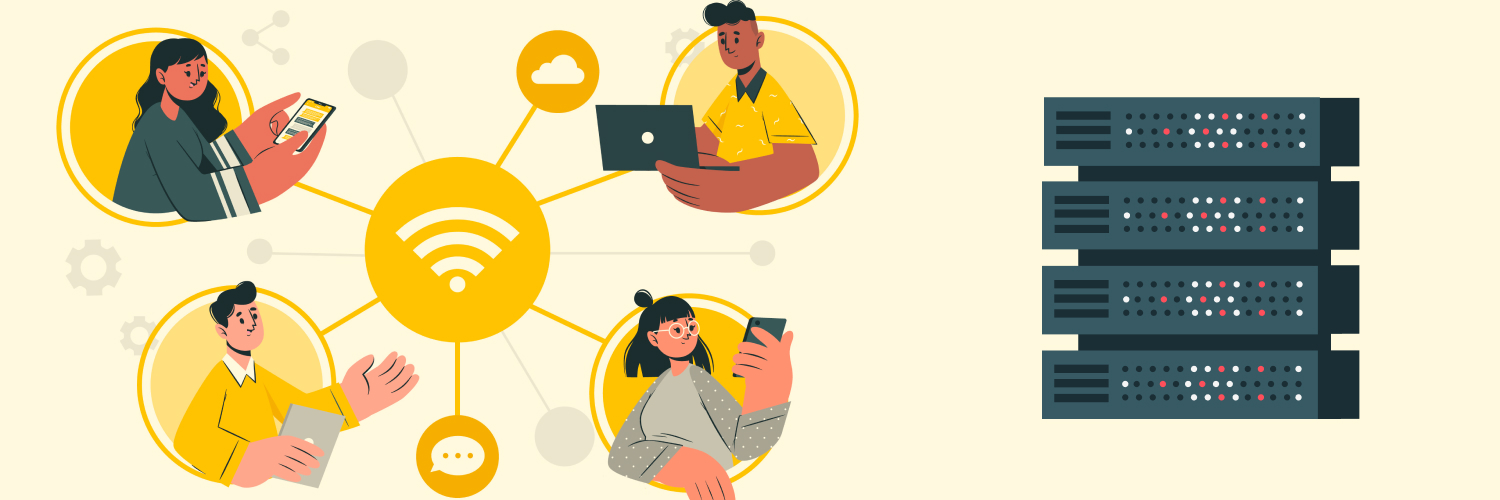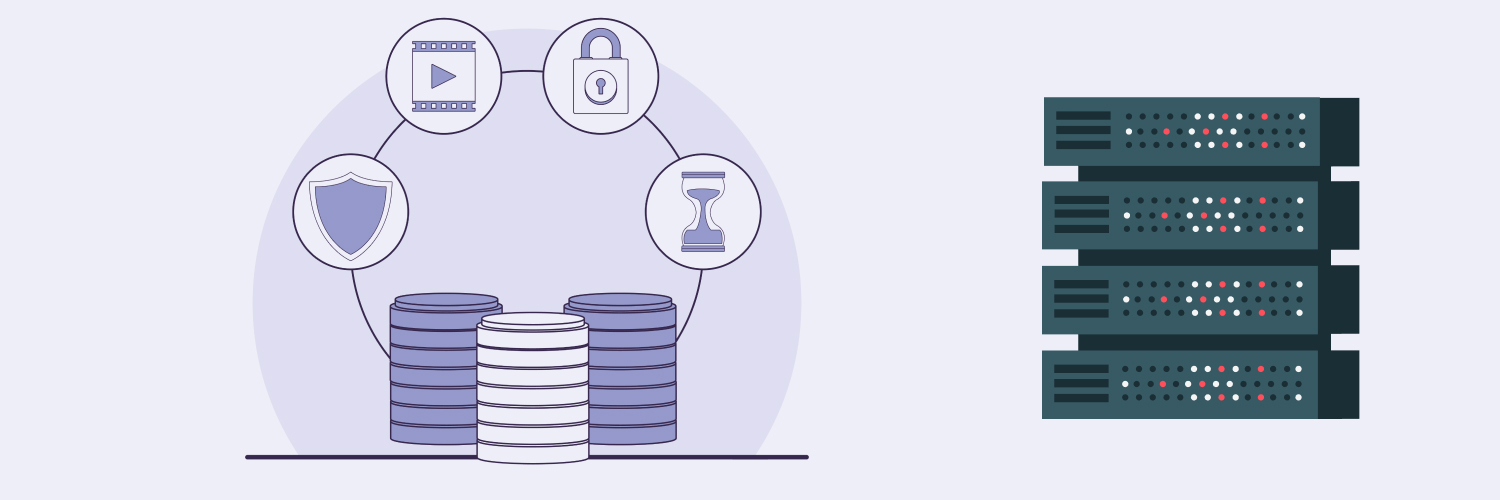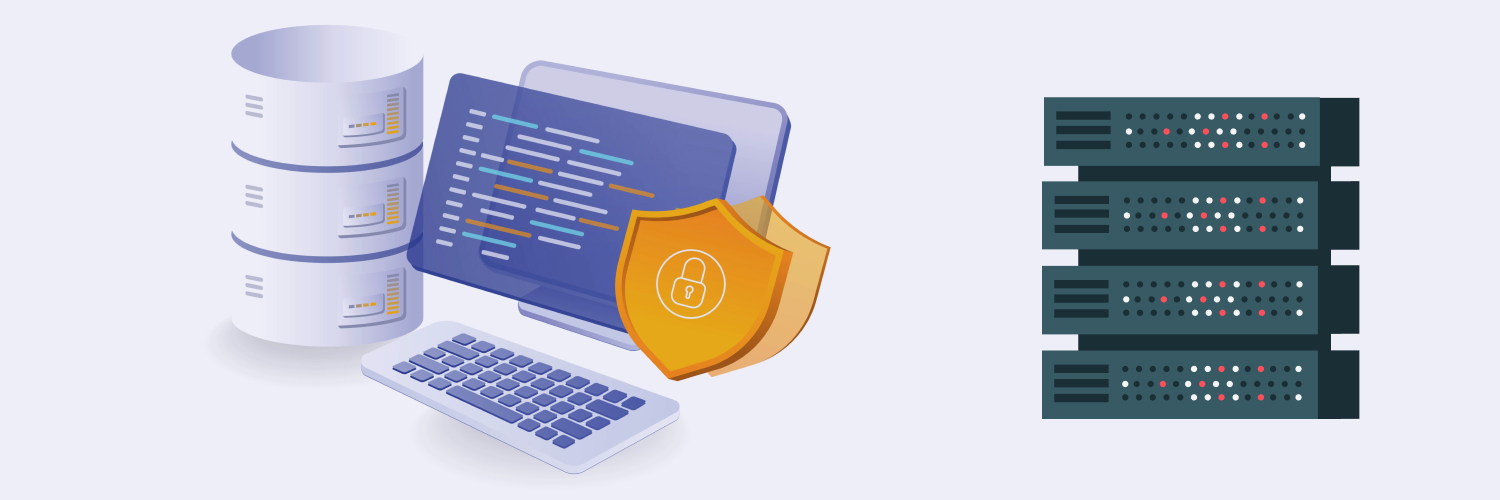How Do Residential Proxies Work? Here’s Everything You Need To Know
When it comes to gathering data, web scraping presents something of a double-edged sword. You can use web scraping tools to acquire information on spending habits, online pricing, and anything else that will help your company stand out and get ahead. But there are several pitfalls that may cause bans and downtimes that force you to waste time and resources getting the data you need. Learning how residential proxies work can help you get around this roadblock.
If you use your company’s IP address to scrape data from the web, websites can recognize and flag your IP address and block you from further data. But if you use a web proxy, the website will see a proxy IP address instead. This allows you to get around bans and avoid costly delays when scraping the web for data.
You have several kinds of web proxies to choose from to improve your web scraping efficiency. One type of proxy many companies find particularly useful is a “residential proxy.” Rayobyte can show you how residential proxies work, how to determine the best fit for your needs, and how to use them to maximize your web scraping returns.
How Do Residential Proxies Work?

All web proxies use remote IP addresses to connect users with websites without exposing their own information. A residential proxy is no different: Requests from your IP address will go to the residential proxy IP address, which will then send your requests to the website you want to access. When this happens, the website will see the IP address from the residential server rather than yours.
The main differences between the most popular web proxies are the kinds of IP addresses they use and the number of proxy IP addresses available. What sets residential proxies apart is their unique IP addresses. Residential proxies work by providing you with proxy IP addresses associated with an actual residential server. The residential proxy is linked to a personal computer or mobile device, which will appear on the website’s end when you send the request for data access.
These IP addresses usually belong to actual web users with residential addresses who lease them to web proxy providers. This is one of their main advantages. Websites are generally less likely to flag residential IP addresses from real devices, so residential proxies work to reduce your risk of getting blocked.
Any ban or downtime can throw a wrench into your web scraping projects. But with a residential proxy service, you can switch to a new residential IP address and continue your activity uninterrupted.
Most residential proxy providers also offer several different residential IP locations to their customers. When using a residential proxy service, you can reroute your requests through many cities, states, and countries. And since your own information is kept private when using a residential proxy, you are also better protected from potential malware from different sites.
Rotating residential proxies
Some residential proxy solutions feature a large library of high-quality residential IP addresses, all connected to actual PCs or mobile devices. This means you can switch between residential IP addresses when accessing numerous websites or gathering large quantities of data.
The main benefit of rotating residential proxies is that they are tough to track and block. With rotating residential proxies, the website will see individual data requests from multiple IP addresses across several locations instead of one singular address. If one residential IP address is flagged and banned by a website, you can quickly and easily switch to a new one without delays.
You can also opt to get a new remote IP address each time you make a new connection to a website. This is especially useful when you need to send many requests to multiple websites, as too many requests from one address are a red flag for bot activity. Rotating residential proxies work great for web scraping for just this reason.
Quality web proxy providers will offer you different options when shopping for residential proxy services, whether a full library of rotating proxies or a single residential IP address for specific circumstances. Both have their advantages and disadvantages, so make sure you investigate how the residential proxies work with each provider.
How Do Residential Proxies Work for Web Scraping?

When it comes to web scraping, residential proxies work by obfuscating specific scraping requests that your IP address sends to other websites. For most companies that rely on web scraping, the most important web data comes from high-traffic websites associated with large companies.
The information you will be scraping is often highly specific. For example, you might scrape information on the prices of an item sold by major online retailers by sending multiple price information requests to track price changes. Or you might send web scraping requests to a competitor’s website to track price changes, sales, product availability, or site traffic.
However, more popular websites and larger companies tend to be much savvier when it comes to their data security. This is especially true for web scraping requests, which frequently involve access to large quantities of data outside the framework of normal site browsing behavior. If you try to access data from a competitor’s website, the site administrator can block your IP address to stop you.
Residential proxies work hard to keep websites from identifying web scraping requests as coming from a web scraper instead of a human user. Websites cannot effectively block too many residential connections without blocking actual users.
For web scraping to be an effective use of your company’s time and money, it must procure enough information with as little delay as possible so that you stay ahead of your competitors. By removing costly delays and downtimes that come with website bans, residential proxies work to minimize inefficiency in your web scraping and maximize returns.
Other uses of residential proxies
In addition to web scraping, residential proxies work for many other types of online data gathering and cybersecurity, such as understanding the market, building effective customer profiles, and protecting sensitive data.
Price monitoring
Residential proxies work to monitor shifts in prices for products or services relevant to your company’s particular market. With access to multiple residential servers, you can keep track of prices from competing online retailers without worrying about bans and downtime that can cost you additional time and resources.
Social media management
Today, companies often have to establish an intricate social media presence across several social media platforms. However, many social media companies have protocols to prevent running too many profiles and accounts from one IP address. Residential proxies work to manage multiple social media accounts and build your social media presence without expending time and resources dealing with social media bans.
Search engine optimization
Your company might use bots or other tools to optimize your returns on search engines. But most popular search engines prevent single IP addresses from making too many requests per minute. If your IP address gets blocked, your company may quickly fall behind in search engine optimization. Residential proxies work to hide your IP address behind a residential server and get through costly search engine blocks.
Accessing geo-blocked content
Many websites employ geo-blocked tools to prevent access from IP addresses in certain countries. If your IP address cannot access a particular website due to your location being geo-blocked, residential proxies work to provide you with a remote IP address from a server in an authorized country. The right IP address will help you access websites you would otherwise be locked out of.
Cybersecurity
Residential proxies also protect your server from cookies, malware, and other cybersecurity threats. When using a residential proxy, the residential server will intercept potential threats from any website you access and keep your server secure.
Brand protection
Bad actors could try to damage your brand’s reputation by launching malicious ads against your website. When using your company’s IP address, you depend on your cybersecurity protocols to verify all ads and keep malicious ones off your page.
But with a high-quality residential proxy, you can add a layer of security and verification to your website. This will help you better verify all ads displayed on your page and block any malicious ones that may damage your brand’s reputation.
Bulk purchasing with bots
Many companies build their profit margins through bulk purchasing of new, limited edition items from major brands. This type of bulk purchasing is common with retail items like sneakers. When major shoe brands release limited edition sneakers, retailers or independent sellers may use bots to bulk purchase many pairs as soon as they come out.
However, retailers often have security protocols to recognize and block bots from one IP address buying more than one exclusive item in a short period. Residential proxies work hard to help your company get around these restrictions. A residential IP address lets bots access retail websites from multiple servers, allowing you to get around security programs and make the bulk purchases you need.
Alternatives to Residential Proxies in the USA

Industry-leading proxy providers like Rayobyte will offer several types of proxy services in addition to residential proxies.
Mobile proxies
Mobile proxies are a type of residential proxy service that uses proxy IP addresses associated with mobile devices. Mobile proxies can be useful when you need to access data on a mobile site or mobile app. But generally, a standard residential proxy gives you more access options overall. So, a residential proxy will probably be the best option unless you need to focus specifically on mobile data.
Data center proxies
Data center proxies use proxy IP addresses associated with large, centralized data center servers rather than individual residential devices. Data center proxies usually offer very high data capacities, which can benefit large-scale web scraping or other processes requiring speed and bandwidth. They’re known for being very fast. However, data center proxies only offer one remote server you may share with other users. Residential proxies are often more useful if you need to circulate between several residential servers.
And there’s always the risk of one person’s bad activity getting multiple users blocked if they’re using the same IP address. A website can also easily identify activity from one of these proxies as originating from a data center, which is a dead giveaway that the user probably isn’t human.
ISP proxies
ISP proxies combine the authority of residential proxies with the large data capacity of data center proxies. They’re assigned IP addresses by real ISPs, which makes them less identifiable than data center proxies. But since they’re hosted in a data center, they also benefit from the faster speeds of data center proxies.
However, these types of proxies are usually the most expensive proxy service because of these combined benefits. Unless you need access to large quantities of data very quickly, regular residential proxies will likely be more cost-effective.
How To Set Up Residential Proxies

Once you have found the best residential proxy for your needs, the next step is to set your proxy up with your network. Residential proxies work with the specific ports included in your company’s computer network. A “port” is the number that differentiates your IP address from the request recipients in a particular network, allowing multiple users to share network resources on the same device.
Your network’s port information is likely in the “Settings” tab of your browser’s setting page. Most ports are either HTTP, HTTP(S), or SOCKS. While HTTP proxies are the most common, HTTP(S) and SOCKS proxies offer additional security features. Once you have identified your network’s ports, you can start setting up the residential proxy itself.
Each proxy should have a specific protocol for setting it up within your network, and the proxy provider should include comprehensive information on how to set it up. In most cases, however, the setup process requires you to open your web browser and enter the new IP address into the proxy field. Different web browsers may have slightly different procedures for opening new IP addresses, so double-check that your proxy IP address is open in the web browser you are using.
After opening the residential proxy IP address in your web browser, the next step is to enable the proxy with your provider. This process may vary depending on whether you use HTTP, HTTP(S), or SOCKS ports. But most often, you will log in to your proxy’s platform, find your desired authorization on the platform’s dashboard, click on it, enter your IP address, and hit “enable IP.” Your network will likely take about half an hour to enable the change of the system authorization. Once the authorization is complete, you can use your new residential proxy address.
Can You Use Residential Proxies Anywhere?

Residential proxies work by connecting your devices to residential IP addresses, which can be from many other parts of the world. Because the IP address is already remote from your devices, you can generally use residential proxies anywhere. As long as you have access to a computer or mobile device on which the residential proxy has been enabled, you can use it on your device.
Locational issues can arise depending on the IP address of the residential or any other proxy your server may connect with. Some regions or countries may limit access to sites to IP addresses within a specific area or block activity from IP addresses outside the region. This is called geo-blocking, and it can be tricky to get around without the right proxy.
But as mentioned earlier, better proxy providers will have proxy addresses from several countries, regions, and cities for you to choose from.
So, in general, you should not have any difficulties connecting your device to the residential proxy from anywhere in the world with an adequate internet connection.
How Much Do Proxies Cost?

Residential proxies can be a bit more expensive than other types of proxies due to the number of residential IP addresses they offer and the fact that they’re so reliable and harder to identify as proxies. High-quality proxy providers must rent their residential proxies from actual users, which factors into the ultimate cost. But this cost comes with numerous benefits regarding access and web scraping efficiency, so the higher upfront investment can pay off in the long term.
Most payment plans for residential proxies work based on a set price per a specific quantity of data. For example, Rayobyte’s start residential proxy plans work up to $15 per gigabyte of data. Other proxy providers may offer different payment plans for different types of customers, so your use case may be a big factor in determining how much you will pay for your proxies.
Rayobyte features different residential proxy plans for individual, corporate, and professional clients (among others). Each plan is based on each customer’s usage and budgetary needs.
How to get free residential proxies
Free residential proxy services are often lower quality and may offer fewer residential IP addresses than professional proxy providers. The free proxies you find online are not recommended, whether you’re using it for personal data security or a larger project like web scraping. Many people use these proxies, so there is a good chance you’ll get blocked quickly because of someone else’s bad behavior. These free proxies are also notorious for slower speeds and may contain malware or monitor your connection.
The good news is that many residential proxy providers offer free trial periods for new customers. Free trial periods can last up to one week, depending on the provider. Other proxy servers offer free credits for new customers, while others may include money-back guarantees for customers who have already paid for the service.
Residential proxies for sale
When browsing for different residential proxies for sale, it’s a good idea to compare the different features of each provider. Most major providers offer residential proxies in the USA, while bigger ones offer residential proxies in countries worldwide. Look into a provider’s network uptime, IP library size, costs and payment plans, and the types of ports their proxies can integrate with.
Learn How Residential Proxies Work With Rayobyte

When shopping for a new residential proxy service, it’s important to understand how residential proxies work and how different proxy services can meet your company’s needs. This is especially true if your company relies on proxies for web scraping large quantities of data. Rayobyte understands the importance of speed, convenience, and efficiency when it comes to web scraping with a proxy. That’s why Rayobyte’s residential proxies work to meet all client needs and budgets while never straying from a core focus on ethical proxy usage.
If you are looking for a new residential proxy for your web scraping needs or want more information on how residential proxies work, you can visit Rayobyte’s blog for comprehensive information on all proxy offerings, how to set them up, and how to maximize your web scraping. You can also review residential proxy payment plans to find the best option for you, and get in touch with Rayobyte to start your free trial today!
The information contained within this article, including information posted by official staff, guest-submitted material, message board postings, or other third-party material is presented solely for the purposes of education and furtherance of the knowledge of the reader. All trademarks used in this publication are hereby acknowledged as the property of their respective owners.






